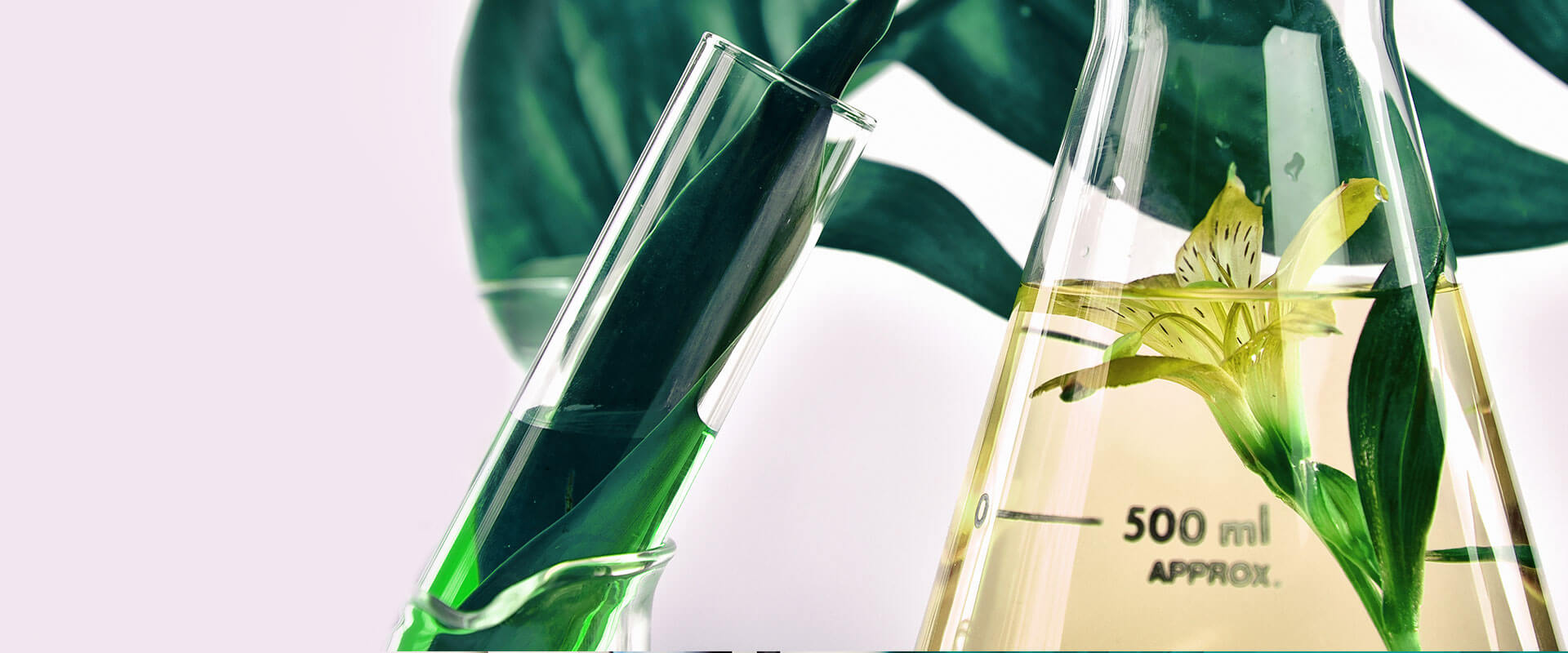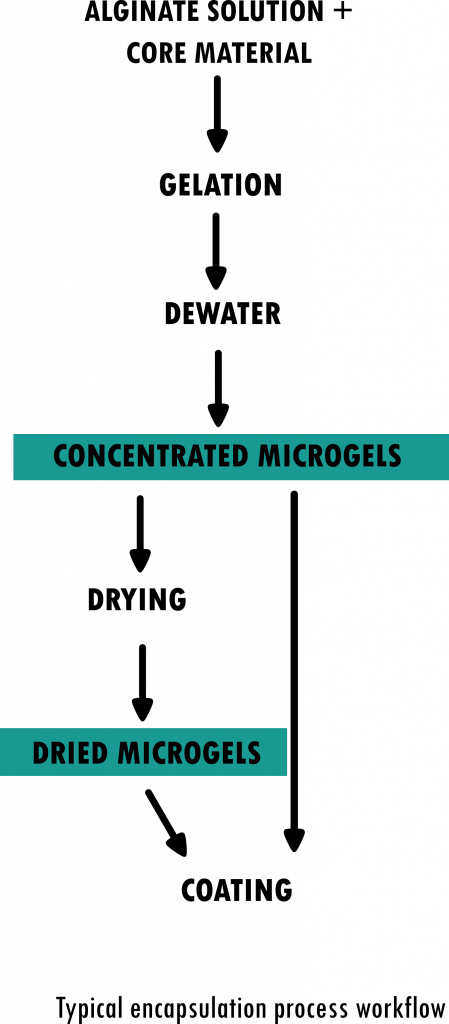The Progel technology
Microgels produced with the Progel technology are made from alginate, a naturally occurring biopolymer extracted from the brown seaweed. Alginate encapsulation is a one-step process and is used widely in molecular gastronomy to form artificial caviar and spherification of liquid. This system has been used extensively by researchers to prove the value of alginate encapsulation in protecting bioactives such as probiotics, as well as controlling the delivery of drugs and masking bitter compounds.
The idea behind Progel originated from the need to scale up the encapsulation process, which prior to this, was achieved with techniques such as the simple needle syringe method. Adaptations of this system for scaling up have proven to be difficult because of the limitations of current methods. With current methods, it is also complicated or inefficient to produce micron-sized gel particles.
The Progel technology is a truly scalable encapsulation technique capable of continuously producing microgels less than 100 microns. Particle size is crucial so as to not affect the sensory properties of the food products they are added into. In-house sensory studies have shown that the impact on sensorial characteristics of ‘grittiness’ and ‘powderiness’ is minimal at microgel particle size below 100 microns. The simplicity of the encapsulation process allows flexibility in adapting the Progel encapsulation process to a variety of existing manufacturing structures. Most importantly, all the ingredients in the microgel are food-grade.






